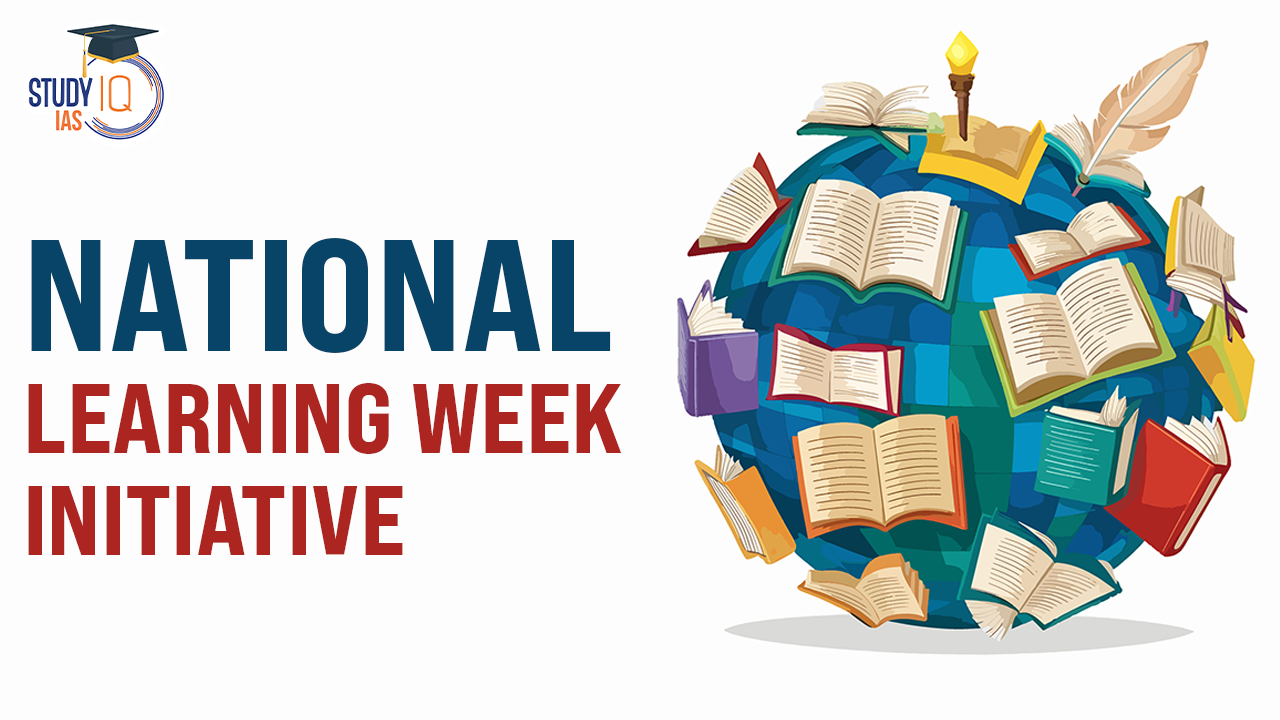Table of Contents
Prime Minister Narendra Modi inaugurated the National Learning Week (NLW) on October 19, 2024, as part of the broader Mission Karmayogi initiative. The NLW marks a significant step toward transforming India’s civil services through continuous learning, upskilling, and capacity-building efforts. Designed to foster a future-ready bureaucracy, NLW aligns with India’s goals of creating an agile, innovative, and efficient governance system that is deeply rooted in Indian values yet embraces global best practices.
This initiative plays a crucial role in addressing the growing need for skill enhancement among civil servants, ensuring they are equipped to navigate India’s evolving administrative challenges.
PM Modi to Launch National Learning Week Initiative
What is Mission Karmayogi?
Launched in September 2020, Mission Karmayogi is the National Programme for Civil Services Capacity Building (NPCSCB), an ambitious reform aiming to reshape the Indian bureaucracy. The program focuses on building a civil service that is:
- Agile
- Competent
- Technologically advanced
- Rooted in Indian values and ethos
Mission Karmayogi is designed to foster a bureaucracy that is not only proficient in traditional administrative functions but also creative, proactive, and capable of addressing 21st-century challenges.
Objectives of National Learning Week (NLW)
The National Learning Week serves as a practical extension of Mission Karmayogi’s goals. Here are the primary objectives of NLW:
- Continuous Learning: NLW encourages lifelong learning, fostering a commitment to professional and personal development among civil servants.
- Skill Enhancement: It focuses on improving domain-specific competencies and skill sets crucial for effective governance and public service delivery.
- One Government Ethos: The week promotes collaboration across ministries, departments, and organizations, aligning civil servants with national goals.
- Public Service Alignment: NLW ensures that the civil services are better equipped to handle public service challenges, enhancing citizen-centric governance.
Karmayogi Commitment
During the National Learning Week, each civil servant, referred to as a “Karmayogi,” is expected to dedicate a minimum of four hours to competency-linked learning. This includes:
- Individual role-based modules on the iGOT-Karmayogi platform.
- Participation in webinars and public lectures by eminent personalities.
- Engagement in policy master classes.
Key Features and Activities of National Learning Week
1. Indic Day Webinar Series
One of the standout features of NLW is the Indic Day Webinar Series scheduled for October 21, 2024. It will bring together experts from various fields to discuss topics that merge India’s civilizational knowledge with modern governance.
Speakers like David Frawley (Vedic scholar), Raghava Krishna (Indian Knowledge Systems expert), and Nandan Nilekani (digital infrastructure pioneer) will present lectures on topics like the Karmayogi philosophy, the relevance of Indian Knowledge Systems, and the role of digital public infrastructure in the future of governance.
2. Workshops and Seminars
Various ministries and departments will organize workshops and seminars during the week, focusing on improving domain-specific competencies like public policy, governance, and service delivery. These events are tailored to the specific needs of civil servants across different levels, ensuring their skills are enhanced in line with India’s administrative goals.
3. iGOT-Karmayogi Digital Platform
A key feature of the Mission Karmayogi is the iGOT-Karmayogi (Integrated Government Online Training) platform. This continuous online learning portal allows government officials from assistant secretary to secretary-level to undergo regular training based on their specific roles and requirements. The iGOT-Karmayogi platform offers:
- Courses curated from global best practices but rooted in India’s national ethos.
- Access to learning modules from international universities, ensuring exposure to cutting-edge knowledge.
- Flexibility for civil servants to engage in continuous learning throughout their careers.
Why Mission Karmayogi and NLW Are Important
1. Need for Reform in Civil Services
Indian civil services have long been criticized for being process-heavy, with a need for enhanced domain expertise and modern administrative capabilities. Mission Karmayogi addresses these gaps by formalizing recruitment processes and focusing on competency-based learning to ensure that the right individuals are matched to the right roles.
2. Global Challenges, Local Solutions
In a rapidly changing global environment, civil servants need to be equipped with the skills to handle complex challenges like climate change, economic transitions, digital governance, and international diplomacy. By fostering an environment of continuous learning, NLW ensures that Indian civil servants are prepared to tackle both domestic and international challenges while staying grounded in India’s rich heritage and values.
3. Building a Future-Ready Civil Service
As India positions itself as a global leader, it is crucial that its bureaucracy evolves in tandem. Mission Karmayogi ensures that civil servants are:
- Technology-enabled: Leveraging digital tools to enhance governance.
- Professional and Progressive: Moving away from traditional bureaucratic hurdles toward innovative, citizen-centric solutions.
- Transparent and Accountable: Ensuring that governance processes are open, fair, and aligned with the aspirations of the citizens.
National Learning Week Initiative UPSC
The National Learning Week (NLW), launched under the banner of Mission Karmayogi, signifies a pivotal moment in India’s civil service reform. Through continuous learning, skill enhancement, and a commitment to lifelong professional development, NLW aims to equip Indian civil servants with the tools they need to serve the nation effectively in the 21st century. As India continues to grow on the global stage, this initiative will ensure that its civil services remain agile, competent, and deeply rooted in the nation’s values.


 Securities Markets Code Bill 2025: Towar...
Securities Markets Code Bill 2025: Towar...
 Weakly Interacting Massive Particles (WI...
Weakly Interacting Massive Particles (WI...
 India–Oman Trade Deal: CEPA Signed to ...
India–Oman Trade Deal: CEPA Signed to ...

























